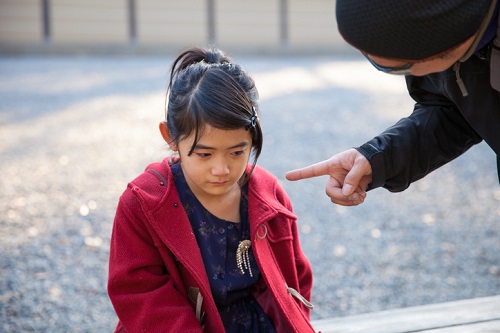
Children with over-controlling parents are more likely to act up in the classroom, a new study has found.
The study, conducted by the University of Minnesota, involved 422 children and examined how often parents intervened in their toddler’s playtime at the age of two.
Researchers from the university found that the behaviour of ‘helicopter parents’ (a parent who takes an overprotective or excessive interest in the life of their child) can negatively impact on their child’s emotional well-being.
This can leave these children unable to cope in social situations and make them potentially unruly in the classroom.
“Our research showed that children with helicopter parents may be less able to deal with the challenging demands of growing up, especially with navigating the complex school environment,” the study’s lead author, Nicole Perry, from the University of Minnesota, said.
“Helicopter parenting behaviour we saw included parents constantly guiding their child by telling him or her what to play with, how to play with a toy, how to clean up after playtime and being too strict or demanding.”
US academic and author, Julie Lythcott-Haims, agrees believes helicopter parenting can stunt the life skills of children.
“The skills that young adults need to thrive in such environments, such as critical thinking, initiative, and resilience, are cultivated through the course of a childhood that is not overly-directed, nor overly-protected by parents,” she said.
Lythcott-Haims, who is the author of “How to Raise an Adult – Break free of the parenting trap and prepare your kid for success”, draws on research, her own observations and those of others to warn against “over-parenting” and parents who live their lives vicariously through their children.
Meanwhile, new research in Australia has shows that the mental health and well-being of students is significantly worse than it was 15 years ago – an issue that Melbourne University educational psychologist, Michael Bernard, says can be exacerbated by helicopter parents.
Professor Bernard recently told The Australian that an increasing number of young people lack resilience to cope with the day-to-day pressures of life.
“We see students who are unable to stand up to pressure – be it a NAPLAN test or simply schools expecting lots more of them – because parents tend to helicopter,” he said.
“Over-involved, very concerned parents are trying to do everything for their children, taking on too much responsibility on their behalf, and as a result kids lack confidence.”
Related stories:
Inquiry-based learning: what the research says
How grammar schools impact student outcomes
Attributes of the world’s best education systems


